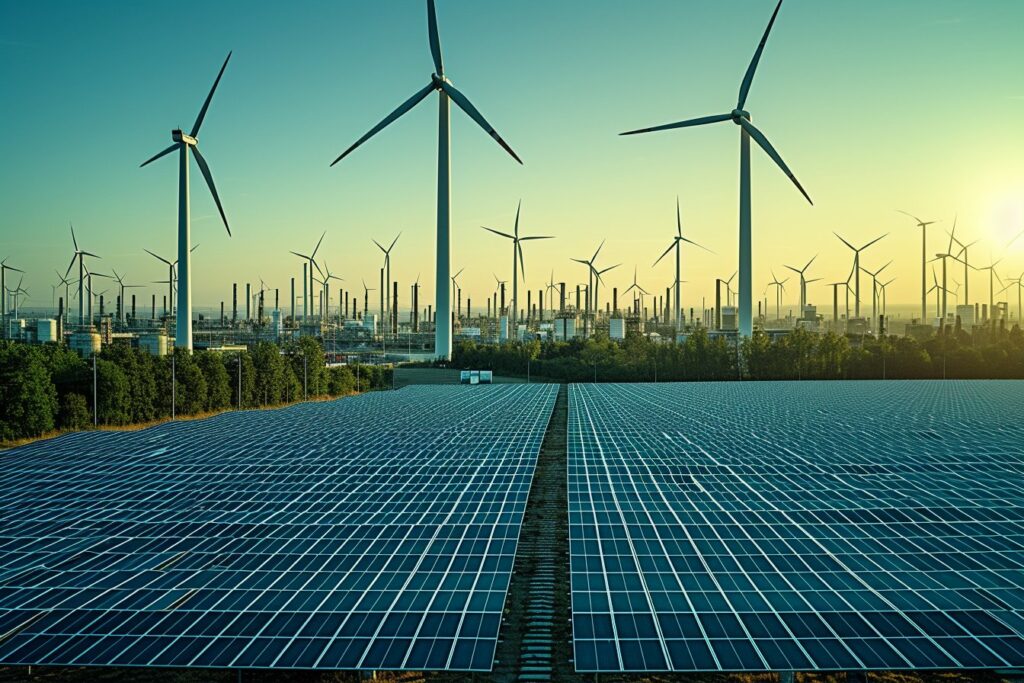In a groundbreaking shift towards sustainability, both the UK and the EU witnessed a record fall in fossil fuel use by 2023. The transition from traditional energy sources to more environmentally-friendly alternatives has been accelerating in recent years, demonstrating the commitment of these nations to combating climate change.
Factors Contributing to the Decline of Fossil Fuels
Numerous factors have contributed to the remarkable decrease in fossil fuel usage in the UK and the EU:
- Government policies and regulations: With stricter carbon emission targets set in place, governments across the UK and the EU have been enacting various policies and regulations that encourage businesses and households to switch to cleaner energy sources.
- Investments in renewable energy: There has been a significant increase in investments in renewable energy projects across these regions, leading to more accessible and affordable options for consumers.
- Technological advancements: Improvements in technology have made renewable energy sources such as solar and wind power more efficient and cost-effective, further decreasing the dependency on fossil fuels.
- Changing consumer behavior: Increased awareness about environmental issues has led to a shift in consumer preferences, driving demand for greener, more sustainable products and services.
- Corporations embracing clean energy goals: As companies recognize the benefits of adopting eco-friendly practices, many have started integrating green initiatives into their business models, reducing overall fossil fuel consumption.
The Role of Renewable Energy in Reducing Fossil Fuel Dependency
The expansion and development of renewable energy sources have played a significant role in the decline of fossil fuel use in the UK and EU. The progress made in this industry has not only facilitated the transition away from traditional energy sources, but it has also led to various benefits including:
- Reduced greenhouse gas emissions: By replacing fossil fuels with cleaner energy sources like solar, wind, or hydroelectric power, countries can significantly reduce their carbon footprints and mitigate the negative effects of climate change.
- Improved air quality: A decreased reliance on coal and other pollutants leads to better air quality, reducing respiratory issues and creating healthier environments for people to live in.
- Increased energy independence: With domestic renewable energy production growing, nations are becoming less reliant on importing fossil fuels, decreasing geopolitical tensions and enhancing energy security.
- Job creation: As the demand for renewable energy grows, so does the number of employment opportunities in related sectors, ultimately boosting local economies.
- Technology innovation: Renewable energy technologies are continually innovating and advancing, allowing for more efficient and cost-effective solutions to emerge.
Achievements in Renewable Energy Deployment
The surge in renewable energy usage in the UK and EU is displayed through remarkable achievements in various subsectors:
Wind Power
Wind power has experienced rapid growth across both regions in recent years. Advances in wind turbine technology have allowed for increases in capacity and reductions in costs, making it an increasingly attractive alternative to fossil fuels. As a result, numerous large-scale offshore wind projects have been commissioned into action.
Solar Power
Solar power has also undergone swift development, as the technology for solar panels has become more efficient and affordable. With lowered installation costs and improved performance, many households and businesses choose to harness solar energy to power their everyday operations.
Hydropower
As another source of clean energy, hydropower generation capabilities have expanded throughout Europe. Harnessing the power of water through dams and river systems provides a reliable and stable energy supply that decreases reliance on coal and natural gas.
The Future of Energy in the UK and EU
While significant strides have been taken towards reducing fossil fuel usage in the UK and the EU, there is still much work to be done. As governments continue to implement policies that encourage renewable energy adoption and corporations set ambitious targets for carbon neutrality, further progress can be made to fight climate change and ensure a greener future.
- Additional investment in renewables: Continued investment will facilitate further advancements in renewable technology, driving down costs and boosting availability for consumers.
- Integration of smart grids and energy storage solutions: The transition to renewable energy sources can be accelerated by implementing smart grid technology and energy storage solutions to overcome any potential inconsistencies in power generation.
- Electrification of transportation and heating systems: By converting transport infrastructure and heating systems to electricity generated from clean energy, additional reductions in emissions can be achieved.
- Enhanced global cooperation: As nations worldwide face similar environmental challenges, increased collaboration and exchange of best practices can drive faster innovation and policy implementation.
With record falls in fossil fuel use across the UK and EU in 2023, it is evident that concerted efforts are being made towards transitioning to more sustainable and environmentally-friendly energy sources. As this momentum continues, it is anticipated that the fight against climate change will gain even more traction for a greener and cleaner future for all.


